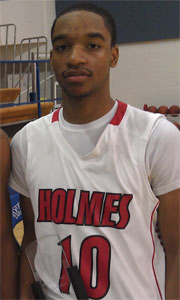In a chapter from his 2009 book “The Young and the Digital”,
S. Craig Watkins describes the way in which today’s adolescents are spending
more and more time engaged in networks, whether that be in mobile devices or on
the Internet. While many will say that this constant engagement with a screen,
termed “always on”, brings great worries that this new generation will be more
connected than ever before at the loss of face to face communication and
becoming more anti-social. Critics of this new movement towards an increasingly
digital world will say that people will prefer the online world to the offline
one, and invest more time into their online relationships than the intimate
ones in front of them. In this chapter, Watkins disputes those claims and
attempts to assuage worries by saying that teenagers’ use of these technologies
is not to create a new world for themselves and create new friendships, but
rather that they use networks to connect with, maintain, and deepen existing
bonds with current friendships. Increasing connectivity does not make teenagers
more anti-social, rather they are engaging in a new type of social behavior. This
generation uses technology not as a substitute for face to face interaction,
but often, as a way to facilitate it. To make his point, Watkins points to the
similarities between this digital connectedness and a common technology – the telephone.
Originally, the phone was used for business and for work, but evolved into a
mass product, and soon became ubiquitous for both business and social phone
calls alike. The telephone made it easier for humans to connect and also pulled
them apart. People feared the loss of face-to-face conversations in the midst
of the telephone, but that fear is no longer a part of our culture. Perhaps the
fears of the Internet will go the same way.
The author of this piece, S. Craig Watkins is a professor at
the University of Texas-Austin who focuses on studying people’s social and
digital media. He has authored 3 books, and has been invited to be a Research
Fellow at Stanford’s Center for Advanced Studies in the Behavioral Sciences. As
one of the nation’s foremost experts on youth culture and their interactions
with digital media, his ideas and claims made in our reading are worth
recognizing and are very valid opinions. The book “The Young and the Digital”
received fairly positive reviews and currently holds a 3/5 on Google Books. His
work was praised for including interviews with young people directly engaged
with this culture and providing a historical context in examining technology.
I believe that Watkins’ intended audience for this reading was not the academic community, but rather for the general population. This is seen in the plain language that he uses throughout the chapter. When he uses terms like “absence in presence” or “third place”, there is no assumption that the reader knows exactly what he means, rather he clarifies each term. Furthermore, I believe that Watkins wrote this piece in part to assuage the fears of parents, educators, and older generations everywhere who are concerned about the current trend of increasing connectedness in today’s teenagers. He seeks to assure that concerned population


.jpg)



